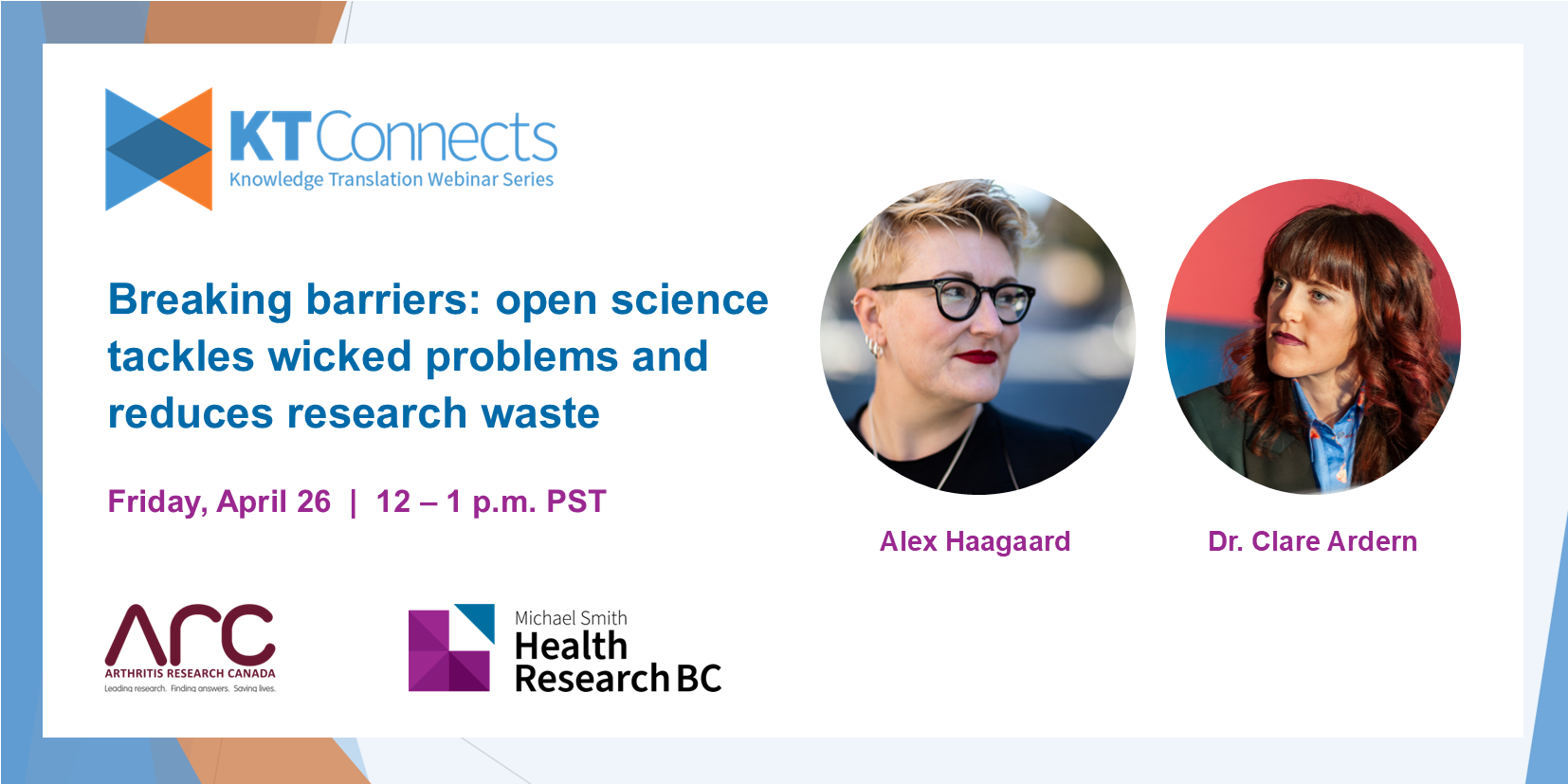
KT Connects – Breaking Barriers: Open science tackles wicked problems and reduces research waste

“Wicked problems” are challenges that are difficult to solve and identify because of their incomplete, contradictory, and evolving requirements. To tackle wicked problems, collaboration is essential. Open science (sometimes called ‘open scholarship’ or ‘open research’) aims to solve wicked problems by promoting collaboration, transparency, and knowledge and resource sharing. By including people with lived experiences on research teams, open science helps to make research relevant to knowledge users and reduces research waste. In this session, we will explore how open science principles help researchers authentically engage knowledge users in high-quality research to solve wicked problems in health research.
Learning Objectives
After this webinar, the audience will be able to:
- Identify knowledge users for specific research projects
- Describe three ways open science practices reduce research waste
- List at least two barriers encountered by patient authors that open science practices can help to overcome
Speaker Bio
Alex Haagaard is a design strategist specialising in digital accessibility, community engagement, disability justice, and health equity. Alex has lived with chronic pain since early childhood. This experience informs their interest in designing and advocating for system-level changes to how healthcare services are conceptualized, planned, and delivered. Alex is a member of Pain BC’s Putting the Pieces Together conference steering committee, and co-chair of the Chronic Pain Network’s Knowledge Mobilization and Implementation Science Committee.
Dr. Clare Ardern is a physiotherapist and assistant professor in the Department of Physical Therapy at the University of British Columbia. Her research team brings researchers, patients, clinicians and health policymakers together to design digital health interventions for musculoskeletal problems. Dr. Ardern is the editor-in-chief for the Journal of Orthopaedic & Sports Physical Therapy (JOSPT) and JOSPT Open. She hosts the popular weekly JOSPT Insights podcast, which reaches over 16,000 regular listeners.




